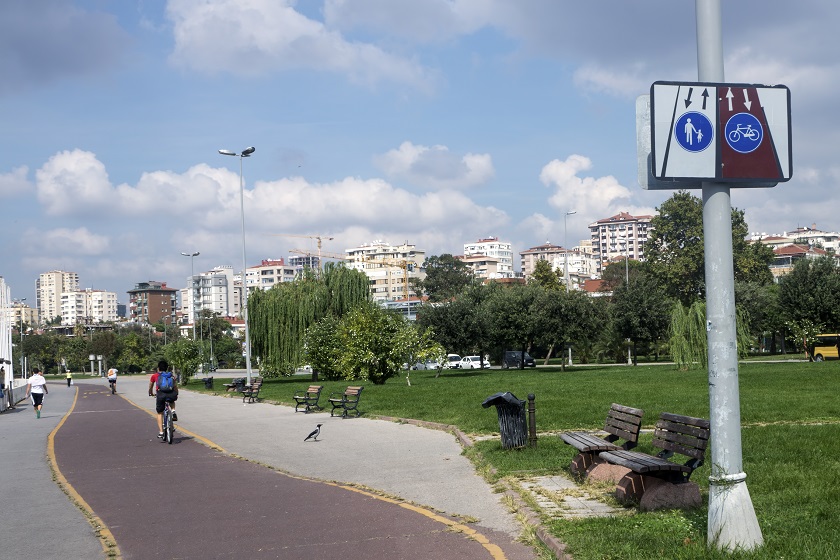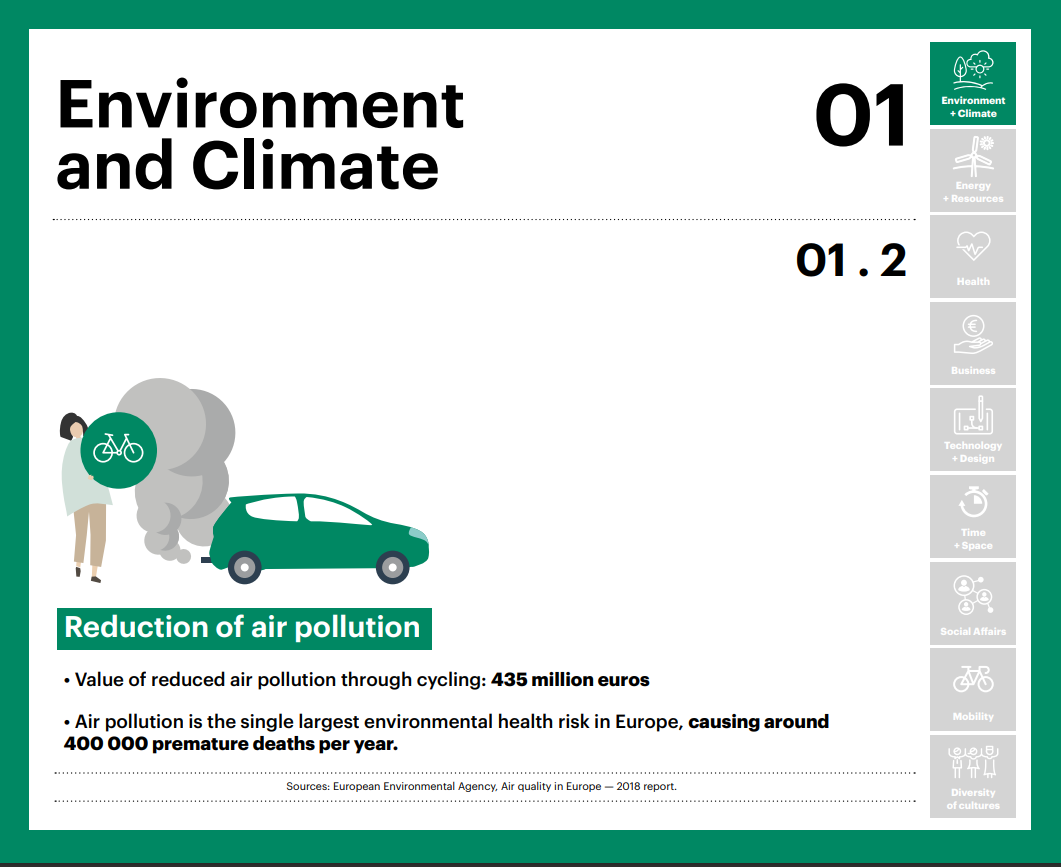
International Day of Clean Air for Blue Skies - Cycling To Tackle Air Pollution
Nine out of 10 citizens breath dirty air. Road transport remains a major source of air pollution that harms human health and the environment. To reduce the impact of mobility schemes on air quality, many European policy-makers are putting the bicycle at the top of their agendas. On the International Day of Clean Air for Blue Skies, we explore the role that cycling is playing in beating this global emergency.
Air pollution is the largest global environmental risk to public health. 92% of our world is exposed to polluted air causing an estimated 7 million premature deaths every year. Over 400,000 of them occur in Europe. This is a major issue affecting all of us, and especially our most vulnerable communities. But the air pollution is a solvable problem and many cities and regions have already greatly improved their air quality by boosting emissions-free mobility schemes. In fact, the coronavirus crisis presents an opportunity to revolutionise the transport sector and tackle this health emergency.
A European momentum against air pollution
During the Coronavirus lockdown, Europeans discovered another side to their cities: cleaner, more pleasant and more breathable. The figures were crystal clear those days: air pollution levels fell down to 50% in many European cities due to reduced use of cars. A few days without traffic was enough to clean the atmosphere of polluted cities in Europe, such as Milan or Madrid. The European Environment Agency estimates that road transport alone contributes 70% of the excessive concentrations of nitrogen dioxide (NO2).
Policy-makers and citizens realised that the quickest way to reduce air pollution was to remove cars from cities' landscapes. Today all eyes and hopes to reduce air pollution are set on the transport sector. This year’s EUROPEANMOBILITYWEEK, 16-22 September, will focus on “Zero-emission mobility for all”. Transport is one of the biggest climate and health problems in Europe, but there is no doubt that it is also one of the EU's biggest opportunities.
The trend is a positive one, as cycling is gaining a strong momentum all over the world. Our COVID-19 Cycling Measures Tracker shows the sudden boost of investments in cycling the Coronavirus situation has triggered in Europe. Over one billion euro extra has been allocated to cycling since the beginning of the crisis, and 2,300km of cycling infrastructure has been announced (with more than 1,000km being already put in place).
Clearing the air: the way forward
This unprecedented mobilisation of funds will certainly improve air quality, both in the short and in the long term, with a direct impact on the (lately fragile) European economy. According to our study on the Benefits of Cycling, cycling prevents 18,110 premature deaths per year, and the reduced air pollution attributable to bicycle mobility is worth €435 million. That is: at 2018 cycling levels. The savings will further increase as more people cycle more often across Europe.
Tackling these issues is vital and cycling is an unavoidable tool to ensure the transport sector contributes to cleaning our skies while getting ever more efficient. The ECF has published a set of recommendations for European, national and local authorities that will help a fast recovery.
Regions:
Contact the author
Recent news!
Upcoming events
Contact Us
Avenue des Arts, 7-8
Postal address: Rue de la Charité, 22
1210 Brussels, Belgium










